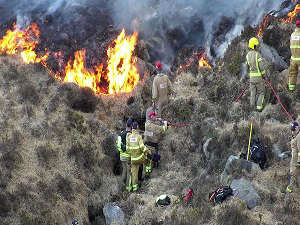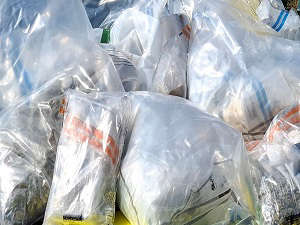
by Gráinne Connolly
The Western Health and Social Care Trust’s (Western Trust) Health Improvement, Equality and Involvement Department is reminding people of the dangers of exposure to the sun and the use of sun beds as ‘Care in the Sun Week’ begins on Monday 14th May 2018.
Skin cancer is the most common form of cancer in Northern Ireland and accounts for one in every four cancers with the rates of malignant melanoma rising rapidly among young people.
Since the late 1970s melanoma rates have trebled among 15 to 34 year olds and experts believe that, along with binge tanning on foreign holidays, the use of sun beds is a primary cause.
Research shows that using a sun bed once a month or more can increase the risk of developing skin cancer by more than half and using sun beds before the age of 35 years can increase the risk of developing melanoma skin cancer by up to 75%.
Sunburn in childhood is also believed to increase the risk of developing skin cancer in later life, so it is vital that children are adequately protected from the sun.
Many people in Northern Ireland are of the view that they don’t need to wear suncream at home, with only one in seven people reporting to use it.
However UV rays can penetrate thin cloud and this can lead to burning; the more burnings a person gets the higher their risk of skin cancer. Melanoma is largely preventable by avoiding sunburn.
Despite the unpredictable weather in Northern Ireland we are still exposed to significant levels of UV rays.
People are encouraged to take the following steps to enjoy the sun safely:
1. wearing suncream factor 15 or above
2. wearing a hat and sunglasses to protect your eyes
3. avoiding sunbeds
4. staying out of the midday sun.
It is also important to check skin regularly for suspected skin cancers:
- Check the whole body as skin cancer can occur in places not normally exposed to the sun.
- Be aware of any new spots, or existing spots that have changed colour, size or shape.
- A skin cancer may be a spot that bleeds easily, never heals properly or is always itchy.
- If any of your moles change size, shape or colour, or become itchy, sore, weep or bleed, see a doctor, or if you have been in the sun and feel dizzy or exhausted seek medical advice.
The good news is that most skin cancers can be treated successfully if caught early enough.


 Firefighters tackle wildfire near Glenshane Pass
Firefighters tackle wildfire near Glenshane Pass
 Thousands march to derelict Casement Park to demand its redevelopment
Thousands march to derelict Casement Park to demand its redevelopment
 PPS to consider any basis for appeal against Oliver MacCormack sentence
PPS to consider any basis for appeal against Oliver MacCormack sentence
 Working group to assess impact of trade tariffs on Northern Ireland businesses
Working group to assess impact of trade tariffs on Northern Ireland businesses
 Drugs worth £860,000 seized following search in Kilkeel
Drugs worth £860,000 seized following search in Kilkeel